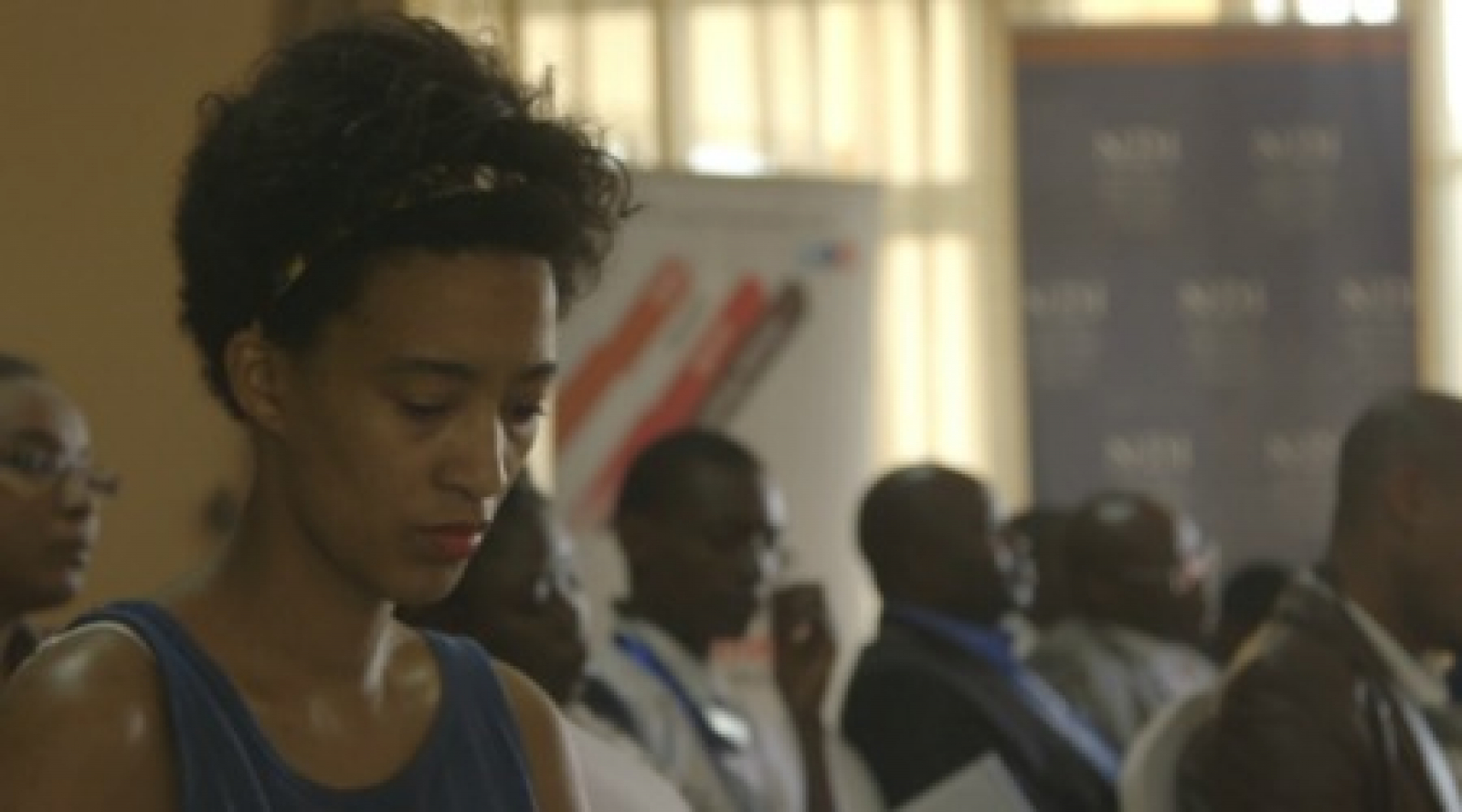
SHARE
“Africa is a better place with youth participation in politics and its future is brighter with women leadership,” @AUC_DPA tweeted, quoting African Union (AU) Commission Director for Political Affairs (DPA) Khabele Matlosa. Matlosa’s words encapsulated the spirit of the youth pre-forum to the AU’s 4th Annual High-Level Dialogue on Democracy, Human Rights and Governance. The three-day event was an important opportunity for young people from across Africa to add their voices to pan-African politics.
When young people and women find avenues for participating in society, they quickly become more confident and active community members than their older counterparts. They are frequently more enthusiastic, have more to gain from political participation and are more willing to take initiative and try new approaches, but many youth and women lack the networks and support from political parties and their communities to attain roles in politics. Africa’s “youth bulge” -- 60 percent of Africa’s population is under the age of 24 -- makes formalizing pathways for youth participation even more vital.
The event, held in Kigali, Rwanda, from December 4 to 6, brought together over 250 young leaders from more than 35 countries, who are active in political parties, civil society organizations, academia, media and the private sector. Participants analyzed and discussed the current state of youth political participation in Africa on domestic and regional levels, and identified strategies on how to enhance young people’s -- especially young women’s -- participation and leadership in political parties. Interactive discussions allowed young people to exchange best practices on how young people can help build accountable, responsive and effective governance throughout the continent.
 Aisha Abdullahi, head of the African Union Commission’s Department of Political Affairs (center), and Keith Jennings, NDI's regional director for Southern and East Africa programs (right), at the youth pre-forum to the African Union’s 4th Annual High Level Dialogue on Democracy, Human Rights and Governance in Africa.
Aisha Abdullahi, head of the African Union Commission’s Department of Political Affairs (center), and Keith Jennings, NDI's regional director for Southern and East Africa programs (right), at the youth pre-forum to the African Union’s 4th Annual High Level Dialogue on Democracy, Human Rights and Governance in Africa.The involvement of young political aspirants, observers and researchers, in high level decision-making is crucial for democratic principles to prosper. “I think as a continent that is predominantly young people we need to find a way to involve them more in policy [decision-making] at higher levels beyond just supporting leaders that are already in place [who] are much older,” said Irene Ikomu, a participant representing Parliament Watch Uganda, a non-governmental organization that monitors the Parliament of Uganda on a regular basis and provides both relevant data and expert analysis.
Samson Itodo, representing the Youth Initiative for Advocacy, Growth & Advancement (YIAGA), a youth-based non-governmental organization in Nigeria that promotes democratic governance, human rights and youth political participation, further emphasized that “as young people, as a young politician, it’s not enough to demand representation; we have to be clear on what we want to use power to do. It should be for the overall common good of our people. If you want power, and you seek power, it’s to advance your country, it’s to promote good governance and ensure that these so-called dividends of democracy are enjoyed by not just a section of our society, but everybody.”
Based on the discussion at the youth pre-forum, the DPA compiled a list of resolutions, which will be delivered to AU member states, organs, institutions and regional economic communities. The outcome document will detail practical ways to support youth and women’s participation in political parties. NDI will publish and print the report, as it has done for the past two youth pre-forums.
On the last day of the youth pre-forum, participants engaged in workshops organized by NDI that concentrated on providing practical examples, resources and techniques to enhance their skills in various areas including consensus building and negotiation, public speaking and leadership.
In June, 2015, NDI signed a MOU with the African Union to collaborate with the AU’s Youth Engagement Strategy. Through technical assistance, NDI will support youth-related activities and programs along the AU’s five thematic clusters: democracy, human rights and transitional justice, governance, constitutionalism and the rule of law. NDI also plans to support the AU’s political leadership program through regional forums that facilitate greater inclusion of youth, particularly young women, adding their views to high-level discussions and creating opportunities for youth leaders to organize around areas of shared concern.
NDI has worked with young politicians, civil society members and democracy practitioners, implementing more than 120 youth programs globally over the past 30 years.
Read more:
- African Youth Steer AU Agenda for “Silencing the Guns”
- Regional Consultations Focus on Youth Building a Culture of Democracy and Peace in Africa
- NDI Partners with African Union to Increase Youth Political Involvement
Published on December 29, 2015


